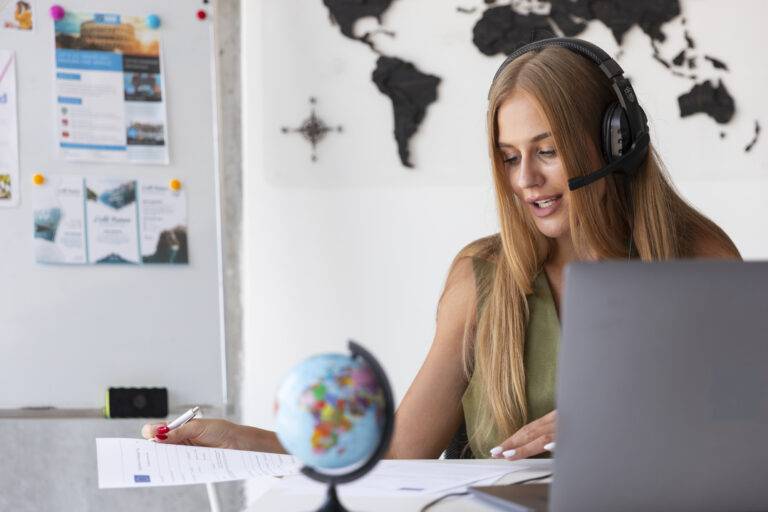French is a widely spoken language that is popular among travelers and tourists. When visiting France, learning basic French phrases for travel can make a significant difference in your experience, as first impressions truly count in French culture. Although many French people understand some English, they often find it harder to speak it.
In fact, you don’t have to be fluent to have fun with French. Learning a few common French phrases shows locals that you’re interested in their culture and community.
When it comes to making a good first impression, even attempting a few key phrases can go a long way, and the French will be pleased you tried.
We’ve created this guide to help make your vacation easier. Throughout this article, I’ll share essential French phrases for travelers that I’ve found invaluable during my time in France. From basic greetings to ordering food and asking for directions, these simple French expressions will help you navigate like a local and enhance your travel experience.
Table of Contents
ToggleEssential Greetings and Polite Phrases
Mastering a few key French phrases is the cornerstone of successful communication when traveling in France. The French appreciate politeness and proper greetings above all else. Let’s explore the essential expressions that will help you make a positive impression during your travels.
Bonjour, Bonsoir, and other greetings
The magical word in French isn’t “s’il vous plaît” but rather “bonjour.” This greeting is absolutely essential when entering shops, asking for help, or beginning any conversation.
In fact, skipping this greeting can come across as rude or abrupt, especially in more traditional establishments. Use “bonjour” (bohn-zhoor) from morning until about 6 PM. After that, switch to “bonsoir” (bon-swahr) for evening interactions. Remember that these greetings are single words—never say “bon jour” or “bon soir” as separate words.
For casual situations with friends, “salut” (sah-lü) works for both hello and goodbye, while the playful “coucou” (koo-koo) is a cute, informal way to say hi.
Merci, S’il vous plaît, and showing politeness
Politeness goes beyond greetings in French culture. “Merci” (mare-see) is the standard way to say thank you, while “merci beaucoup” (mare-see boh-koo) means thank you very much. When making requests, always include “s’il vous plaît” (seel voo play) for formal situations or “s’il te plaît” (seel tuh play) in casual contexts.
If someone thanks you, respond with “de rien” (duh ree-en), “pas de quoi” (pah duh kwah), or the more formal “je vous en prie” (zhuh voo-zon pree). Other essential polite phrases include “excusez-moi” (ex-kew-zay mwah) for “excuse me” and “pardon” (par-don) when you need to apologize.
How to say goodbye: Au revoir and more
Saying goodbye properly is just as important as greeting someone correctly. “Au revoir” (oh ruh-vwahr) is the universal goodbye that works in virtually all situations.
Additionally, you can use “bonne journée” (bun zhoor-nay) to wish someone a good day when parting ways during daytime, or “bonne soirée” (bun swah-ray) in the evening.
For casual situations, try “à bientôt” (ah bee-en-toh) meaning “see you soon,” “à demain” (ah duh-man) for “see you tomorrow,” or “à plus tard” (ah plew tar) for “see you later.” In informal emails or texts, “à plus” (ah plews) or even “A+” are common abbreviations.
Simple French phrases to introduce yourself
Starting a conversation often requires introducing yourself. The most common way is “Bonjour, je m’appelle…” (bohn-zhoor, zhuh mah-pel) followed by your name.
Alternatively, you can say “Je suis…” (zhuh swee) followed by your name. For formal situations like job interviews, consider “Bonjour, je me présente. Je m’appelle…” (bohn-zhoor, zhuh muh pray-zahnt. Zhuh mah-pel).
If someone introduces themselves first, you can respond with “Moi, c’est…” (mwah seh). When meeting someone new, it’s customary to follow introductions with “enchanté(e)” (on-shahn-tay), meaning “pleased to meet you.”
Getting Help and Asking for Directions
Finding your way around France becomes much easier when you know a few key phrases to ask for help and directions. Communication barriers can make travel challenging, nonetheless, with these basic French expressions, you’ll navigate with confidence.
How to ask if someone speaks English
Approaching locals begins with a polite greeting. Always start with “Bonjour” before asking if someone speaks English. The most common formal way to ask is “Parlez-vous anglais?” (par-lay voo zahn-gleh).
For informal situations with peers, you can say “Parles-tu anglais?” (parl-too ahn-gleh). Furthermore, showing effort with this simple French phrase often encourages locals to help, even if their English is limited.
Phrases for asking where things are
Finding locations in France is straightforward with these expressions. The simplest way to ask is “Où est…?” (oo eh) meaning “Where is…?”. For more specificity, try “Comment puis-je aller à…?” (koh-mahn pwee-je ah-lay ah) which means “How can I get to…?”. Similarly, you can ask “Y a-t-il un/une… près d’ici?” (ee ah-teel uhn/oon… preh dee-see) to find out if something is nearby.
How to say you’re lost or need help
When you’re disoriented, “Je suis perdu(e)” (zhuh swee pehr-doo/pehr-doo) clearly communicates “I’m lost.” For assistance, say “J’ai besoin d’aide” (zhay buh-zwan dehd) meaning “I need help.” In emergencies, “Au secours!” (oh suh-koor) is the universal cry for help.
Clarifying with ‘Can you repeat?’ and ‘I don’t understand’
Miscommunications happen frequently. When you don’t understand, simply say “Je ne comprends pas” (zhuh nuh kom-prahn pah). To ask someone to repeat, use “Pouvez-vous répéter, s’il vous plaît?” (poo-vay voo ray-pay-tay, seel voo pleh). For slower speech, request “Pouvez-vous parler plus lentement?” (poo-vay voo par-lay ploo lahnt-mahn).
Dining Out Like a Local
Enjoying French cuisine is a highlight of any trip to France, as dining experiences become more authentic when you can order in the local language. With a few essential phrases, you can navigate menus and interact with waiters confidently.
Ordering food and drinks in French
When ready to order, catch your server’s attention with “On est prêt à commander” (We’re ready to order). Then use “Je voudrais…” (I would like) or “Je vais prendre…” (I’ll have) followed by your dish choice. For water preferences, ask for “une carafe d’eau” for free tap water, “de l’eau plate” for still water, or “de l’eau gazeuse” for sparkling water.
How to ask for the bill or menu
To request the bill, simply say “L’addition, s’il vous plaît” with eye contact. Alternatively, use “Puis-je avoir l’addition, s’il vous plaît?” for a more formal approach. Never shout across the room or use “Garçon!” to get attention. Instead, make eye contact and raise one finger discreetly.
Common phrases for dietary needs
For dietary restrictions, use “Je suis végétarien(ne)” (I’m vegetarian) or “Je suis végétalien(ne)/végan(e)” (I’m vegan). Explain allergies with “Je suis allergique à…” (I’m allergic to…) or ask “Est-ce que c’est servi avec…?” (Is this served with…?) to clarify ingredients.
What to say when something tastes great
Express enjoyment with “C’est délicieux” (It’s delicious) or “C’est très bon” (It’s very good). For extra enthusiasm, try “Je me régale” (I’m loving this) or “C’est un délice” (It’s a delight). French hosts appreciate specific compliments about presentation or flavor.
Cultural Tips and Local Expressions
Understanding French cultural nuances can save you from embarrassment during your travels. The French language has many expressions that tourists often misinterpret, leading to amusing—and occasionally awkward—situations. Let’s explore how to sound more like a local and avoid common linguistic pitfalls.
Common French phrases tourists misuse
Many English speakers use French words that actually mean something different in France. For instance, “à la mode” doesn’t refer to ice cream on dessert—it simply means “fashionable” or “in style.” Likewise, “chef” in French literally means “head” or “chief,” not specifically a cook.
The term “château” isn’t exclusively a castle but can refer to country houses, wineries, or noble estates. Perhaps most surprisingly, when Americans use “cause célèbre,” they’re using a phrase that isn’t commonly used in everyday French conversation.
Funny translation mistakes to avoid
Pronunciation mistakes can create memorable misunderstandings. Many tourists have accidentally said “merci beau cul” (thank you, nice backside) instead of “merci beaucoup” (thank you very much).
Another common error occurs when expressing excitement—saying “Je suis excité!” actually suggests you’re sexually aroused, not merely enthusiastic. French speakers also chuckle when visitors order a “café noisette” expecting a nutty coffee, only to receive an espresso with a dash of milk.
French idioms that impress locals
Using idioms correctly can make locals appreciate your language efforts. Try “ce n’est pas la mer à boire” (it’s not that difficult) or “avoir une araignée au plafond” (to be a bit crazy).
Other impressive expressions include “poser un lapin” (to stand someone up) or “s’occuper de ses oignons” (mind your own business). These colorful phrases demonstrate a deeper understanding of French culture beyond tourist-level language.
Basic French phrases with pronunciation tips
French pronunciation challenges include nasal vowels and the infamous “R” sound. Practice words like “la rue” and “regarder” to master the French “R.” Remember the CaReFuL rule—if a French word ends with C, R, F, or L, the final letter is usually pronounced; otherwise, it’s silent.
Pay attention to linking sounds between words, as in “vous vous appelez” which sounds like [vuvuzapeley]. Consistent practice with proper pronunciation shows respect for both the language and its speakers.
Conclusion
Mastering these basic French phrases will certainly transform your travel experience in France. Throughout this article, we’ve explored essential greetings like “bonjour” and “merci,” which serve as the foundation for positive interactions with locals.
Additionally, we’ve covered helpful expressions for finding your way around, ordering delicious French cuisine, and navigating cultural nuances that might otherwise lead to amusing misunderstandings.
Above all, remember that attempting to speak French, even imperfectly, demonstrates respect for the culture and often encourages locals to respond with patience and assistance.
French people truly appreciate the effort, regardless of your accent or occasional mistakes. During my time in France, I found that locals were far more receptive when I began conversations with proper French greetings, followed by my best attempt at their language.
Before your trip, consider practicing these phrases aloud to build confidence. Consequently, you’ll feel more prepared to engage with locals from the moment you arrive.
Meanwhile, don’t forget that learning a few idiomatic expressions can significantly elevate your conversations beyond tourist-level interactions.
While becoming fluent requires time and dedication, these 30 basic French phrases will undoubtedly help you communicate effectively during your travels.
After all, language serves as a bridge between cultures, and each phrase you learn opens new doors to authentic experiences. Bon voyage et bonne chance with your French language adventure!





